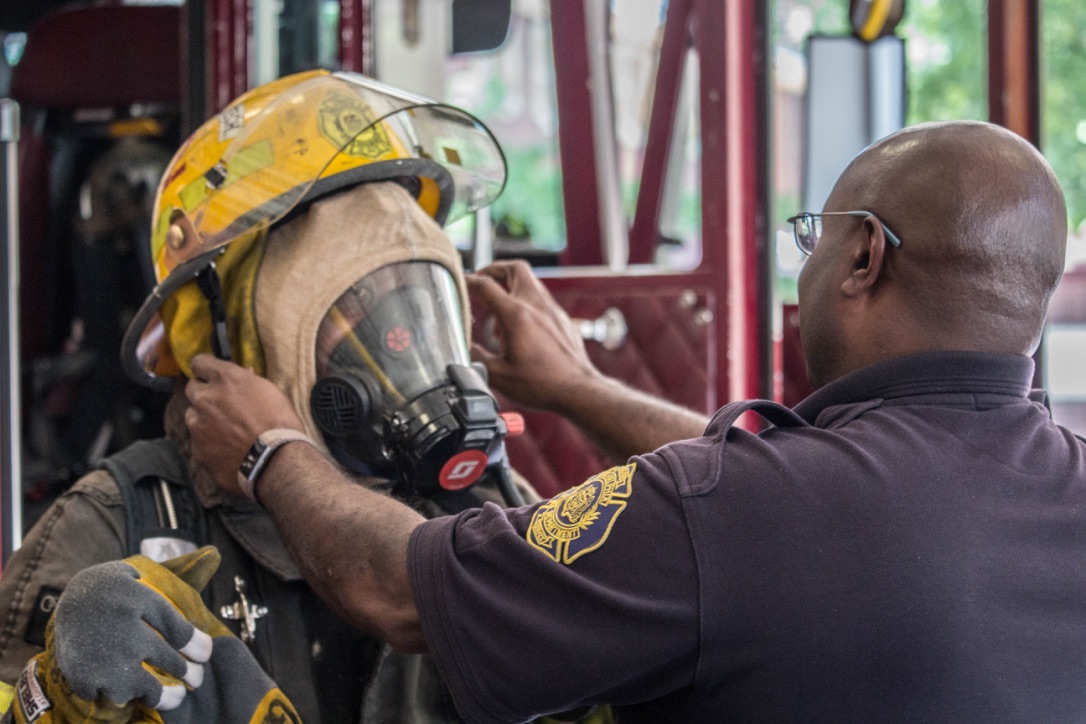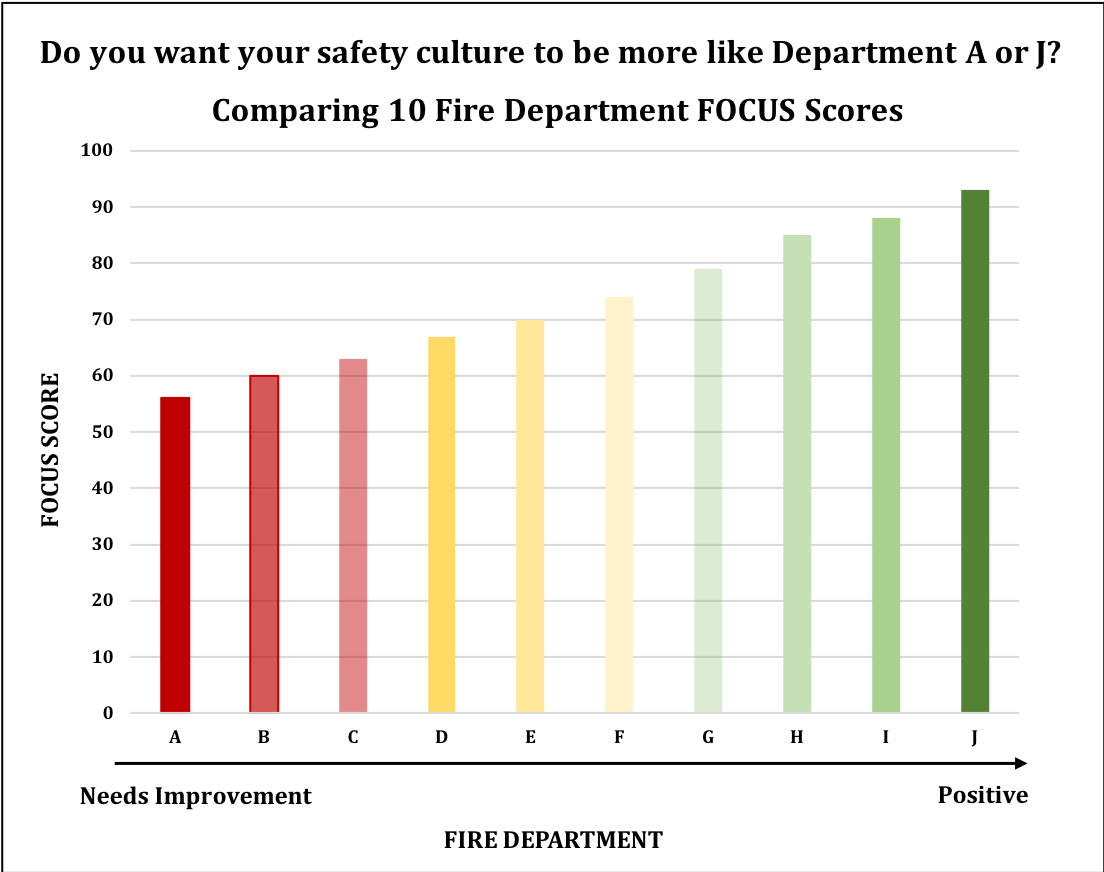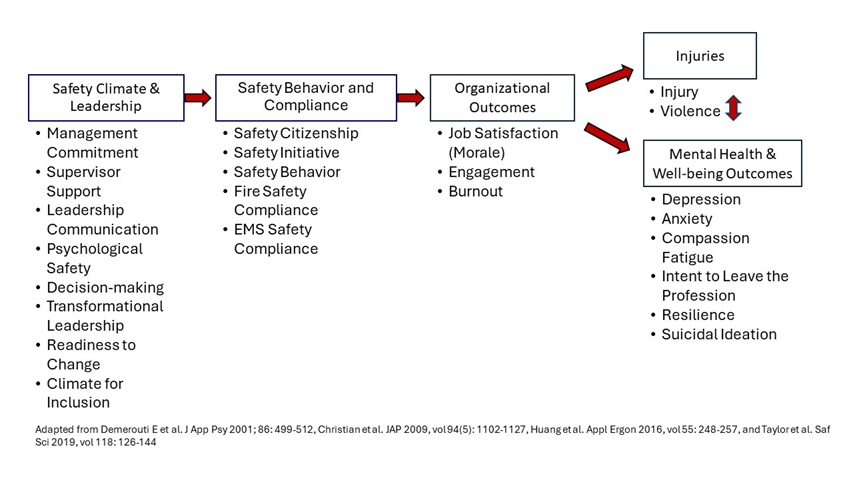Fire Service Organizational Culture of Safety (FOCUS)
WHAT IS FOCUS? FOCUS ENROLLMENT DEPARTMENT SUCCESS STORIES FAQ SURVEY TOOLKIT CULTURE CAMP

Until recently the US fire service lacked a reliable and valid instrument to measure its specific safety climate. In 2012, FEMA funded the Center for Firefighter Injury Research and Safety Trends (FIRST) at Drexel University to develop an industry-specific firefighter safety culture survey. One hundred and thirty-two fire departments participated in the beta-test version of the survey, and a validated survey tool—the Firefighter Organizational Culture of Safety (FOCUS) survey—was developed. In 2016, Drexel University partnered with the Fire Department Safety Officers Association (FDSOA) and was awarded a FEMA FP&S grant to move research into practice through dissemination of the survey tool. To date over 400 fire departments have assessed with FOCUS.
FOCUS provides fire departments with objective data to reduce injuries in the fire service. Our research team provides technical assistance for survey administration and data analysis to fire departments who are interested in measuring their safety culture.
All participating departments receive customized reports of their safety culture scores and, where applicable, scores by individual stations within their department. As appropriate, fire departments will be able to benchmark their scores to departments in their FEMA region and to similar departments throughout the US.

Through continued collaboration with FDSOA, FIRST is offering FOCUS to the US fire and rescue service to assess their department's safety culture.
Why is Safety Culture Important to Assess in Your Department?
The National Fallen Firefighters Foundation has highlighted the need to examine the culture of the fire service within Initiative #1 of the Firefighter Life Safety Initiatives: “Define and advocate the need for a cultural change within the fire service relating to safety; incorporating leadership, management, supervision, accountability, and personal responsibility.”

The culture around safety in any organization is a strong predictor of injuries. Safety climate is the measurable aspect of organizational safety culture and has been used by other industries such as healthcare, construction, and manufacturing to gauge and improve safety performance. The model for this project presumes that climate-outcome relationships are mediated by safety behavior, as tested and supported in the meta-analytic study of Christian et al. (2009). This framework reflects the current evidence of the causal path that safety climate takes to impact organizational and safety outcomes.
Given the evidence regarding climate’s predictive validity, it follows that improvements in safety climate will result in subsequent improvements in safety behaviors along with a reduction of poor safety outcomes including near-misses, injuries, and line of duty deaths. Recent research also finds that improvements to safety climate result in improvements to organizational outcomes—not traditionally thought of as 'safety' outcomes—such as turnover, job satisfaction, employee engagement, and morale.
For more information or questions regarding the FIRE Fellowship, please contact FIRST Center Director, Dr. Jennifer Taylor, at jat65@drexel.edu.
Find out more about our safety culture work: